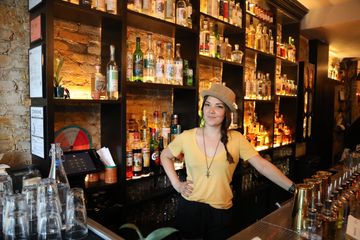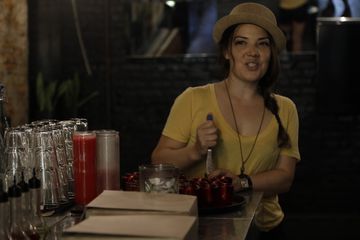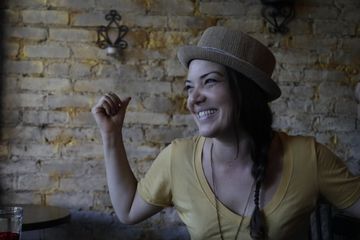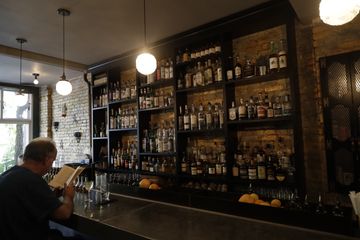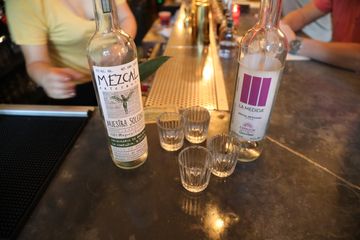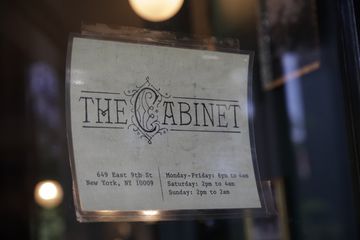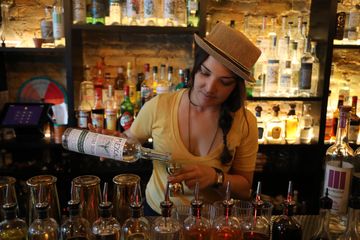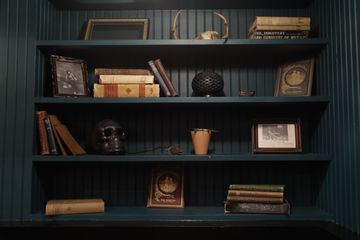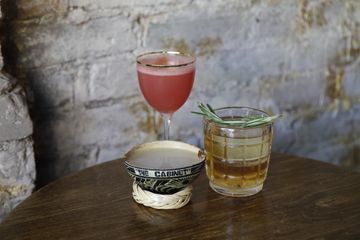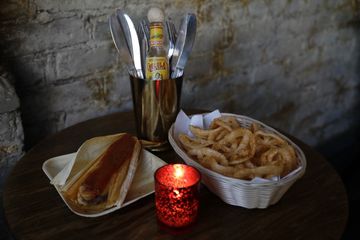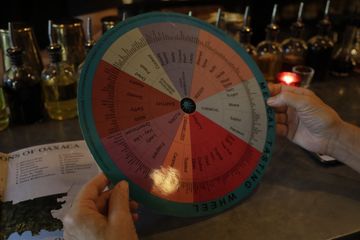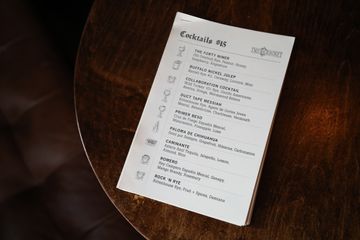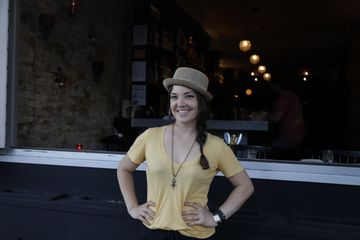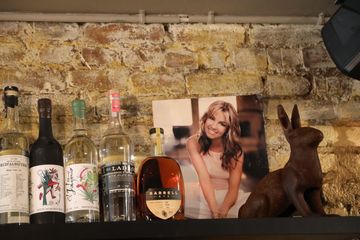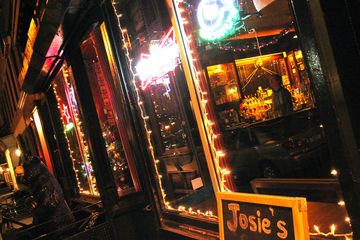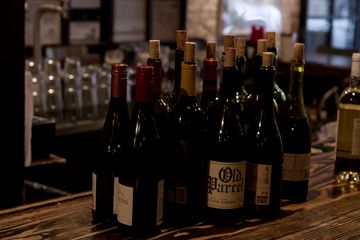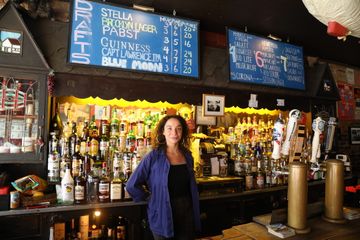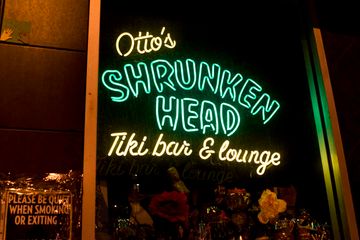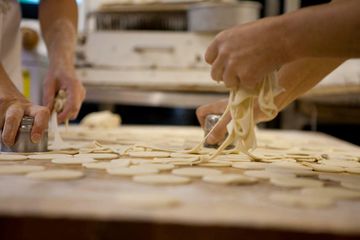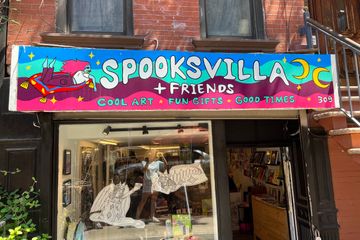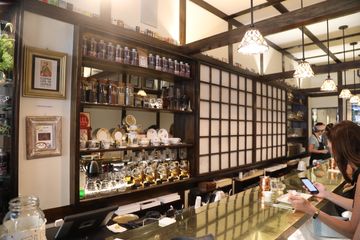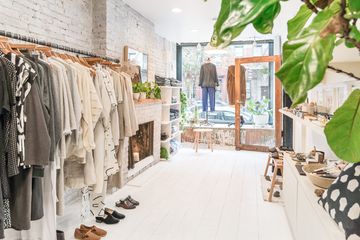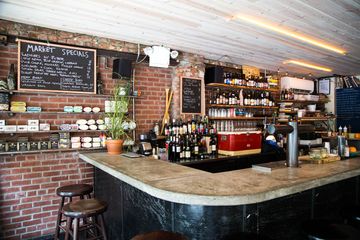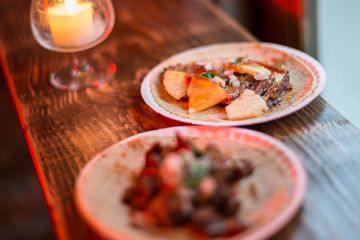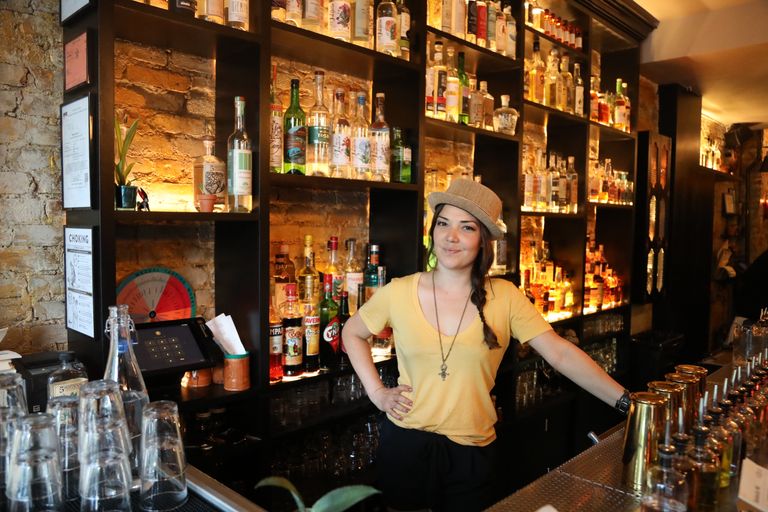
Replacing the recently relocated Mace, and owned by the same company, the Cabinet - opened in May 2019 - serves a carefully prepared array of mezcals, tequilas, and ryes in a cozy and unique location in Alphabet City. The Manhattan Sideways team was immediately astonished by the attention to detail displayed by head bartender Christine Helmer in creating the atmosphere, as she busily prepared candles before presenting us with cocktails and telling us about the business. It did not take me long to realize that this attention to detail extends to almost every aspect of the bar, from its well-crafted, variously flavored cocktails to its idiosyncratically romantic, home-like interior energies curated by a decor reminiscent of a hybrid Victorian and US Western cultural era.
Originally from Germany, Christine easily contextualized her bar’s specialty, mezcals, as often misperceived as too “smoky” or “aggressive” by less open-minded New York bargoers. She resists this misclassification. She notes that mezcal’s flavor potentials are almost endless and are underappreciated by many United States bars, and her cocktails proved her point; after trying the sweet, foamy, lime and watermelon flavored Primer Beso, I realized that mezcal was not relegated to the smoky aftertastes I remembered from the first time I drank it. It was true: “the more you learn about it the more you realize you didn’t know anything,” as Christine reflectively mentioned. While the Romero and the Caminante were more harsh, they were not devoid of their own individually intricate flavors that I suspect become more complex as one’s mezcal palette develops. The Caminante was served in an Oaxacan gourd, which Christine noted was the traditional vessel for mezcal consumption among Oaxacan indigenous farmers.
These liquors are a passion for Christine, who enthusiastically added that the Cabinet offers free educational seminars for its customers who want to learn more about the world of mezcal. Although she recognized that mezcal was indeed “in,” she emphasized that the public’s affinity to liquor fluctuates dynamically with time, and that she has seen certain liquors rise and fall quickly in popularity during her career. Her knowledge of the industry was fascinating, as she described her ascendance to the Cabinet as built upon a combination of reading quality cocktail books and talking to bartenders and mentors. If anything was clear from the interview, it was that mezcal was much more than a job for Christine.
She traveled down to Oaxaca, Mexico earlier in 2019, dancing in agave fields as she directly worked with mezcal farmers. She identified a number of differences between the production of mezcal in these regions of Mexico and the production of other types of liquor by large corporations in the US. Mezcal’s versatility and diversity is a product of its resistance to corporatization in the US, and it is subsequently relatively unpopular in US markets (in contrast to the “industrial” tequila); it is not only sustainably and locally developed, but is also often reflective of the other types of crops grown in the region and their flavors. The bar put its money where its mouth was: all of its liquors come from small producers, many with eye-popping approaches to graphic design that added to the stimulating decor behind the bar. The variety of these liquors “grouped by species” was notable, and they sure make you feel alive.
For Christine, a constant struggle is making sure that the world of cocktails is something accessible, simple, and easily understood, rather than pretentious, arcane, and elitist, something she carries with her from her trip to Oaxaca. Cocktails do not have to be scientifically produced, and as she recognizes, sometimes it is just about finding what works along more “spiritual” lines. Her balanced approach to bartending was relieving; the overall vibe of the bar felt both renewing and healing, not overwhelming. After finishing the cocktails, we were served some delectable chicharrines with a chili-lime salt, and some soft, warm tamales from Lupita’s in East Harlem.
